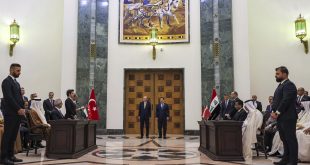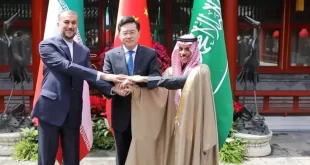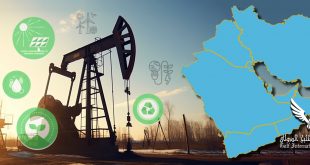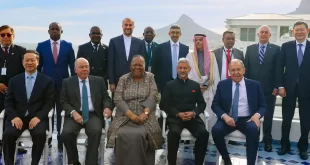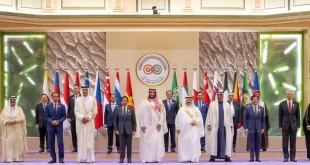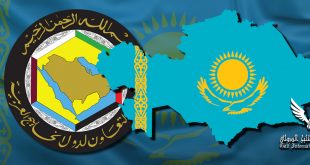Historically reliant on its abundant gas and oil resources, Azerbaijan is currently experiencing a significant energy transition aimed at enhancing sustainability and broadening its energy composition. The country has made large investments in hydroelectric, solar, and wind power to meet its ambitious targets for increasing the share of renewable energy …
Read More »Geopolitics and Challenges in Iraq’s Quest for Regional Connectivity
To advance its ambitious Development Road project, Iraq must navigate several obstacles, including inadequate infrastructure, corruption, security concerns, and a delicate geopolitical position. Last month, after Turkish President Recep Tayyip Erdogan visited Baghdad, Iraq announced that it would join the region-wide “Development Road” project, which will link the country with Qatar, the UAE, and …
Read More »Saudi Iranian Relations Remain Cool Despite Renewed Diplomatic Ties
Hopes for increased economic cooperation between Iran and Saudi Arabia following last year’s diplomatic reconciliation have not materialized, due to historical and political factors Saudi Arabia and Iran have a long history of hostility, usually taking opposing sides in regional conflicts such as Yemen, Lebanon, and Syria. This competition, fueled by disruptive activities …
Read More »The Economic Fallout Of The Gaza Conflict For Iran
The Gaza-Israel conflict has significant implications for Iran’s already strained economy, characterized by currency devaluation, reduced government revenues, and high inflation. Iran’s involvement in the regional conflict hinders its economic growth efforts, further reduces the value of the Iranian rial, and decreases government income. Additionally, it has worsened economic problems such as …
Read More »Iran’s Hydrogen Fuel Production Plans Face Significant Hurdles
Iran currently lacks a substantial presence in the burgeoning hydrogen industry, despite its abundance of natural gas and renewable energy potential. Utilizing renewable energy sources such as solar or wind power, “green hydrogen“ is produced by electrolysis, which produces hydrogen without any emissions. This contrasts with traditional techniques that release carbon dioxide. Experts anticipate …
Read More »Navigating New Horizons: The Gulf’s Dynamic Energy Landscape in 2024
In 2024, the Gulf’s energy sector is poised at a critical juncture, balancing the traditional reliance on hydrocarbons with ambitious strides toward renewable energy and economic diversification amidst global economic fluctuations and regional geopolitical tensions. The Middle East played a significant role in the global energy market in 2023, navigating the delicate …
Read More »Iran Becomes A Member Of BRICS, With Hopes And Challenges
Iran officially became a member of the China-led BRICS economic organization on Monday, as it seeks to overcome the impact of US sanctions and overcome it isolation. In its policy of finding shelter under Chinese and Russian-dominated international organizations, Iran achieved full membership in the Shanghai Cooperation Organization in July 2022 and …
Read More »GCC, Iran’s Northern Neighbors Expanding Financial Ties
As Iran grapples with a severe lack of foreign investment, its Arab neighbors are increasingly channeling funds into Iran’s northern regions, boosting trade turnover. On December 17, the United Arab Emirates and the Republic of Azerbaijan jointly launched a substantial investment fund worth one billion dollars. This collaborative venture sees …
Read More »Gulf States’ Opportunities in Kazakhstan’s Emerging Economy and the Middle Corridor
As the world’s great powers and the GCC states cast their attention toward the region, the nations of Central Asia could play a major role in facilitating trade between Europe and China. When U.S. President Joe Biden and Chinese President Xi Jinping met in San Francisco to patch up Sino-American …
Read More »Ripple Effects of the Gaza War: Geopolitical Strains and Energy Market Shocks
The Gaza war has exerted significant pressure not only on the geopolitical equilibrium but have also sent ripples through global trade initiatives, energy markets, particularly affecting investment strategies and operations in the oil and gas sectors within the Mediterranean region. The ongoing Israel-Gaza war has dramatically increased geopolitical tensions across …
Read More »

